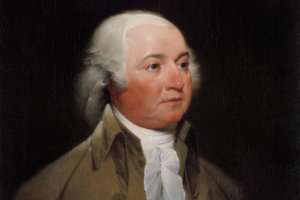Raising Statesmen

In a democracy, we get the politicians we deserve. Apparently we deserve many leaders, but no statesmen. We may be happy or unhappy about the policies a politician promotes, and we may vote this way or that depending on who we think will best promote our interests. No one today, however, seems very happy about the personal caliber of our politicians. They may be effective, they may just be the least of the evil options, but they all tend to lack character and virtue.
We can explain this deficiency readily enough through the usual suspects of technology and media. As Neil Postman would remind us, the very forms of media through which we conduct political discourse today privilege the sound bite, the short and easily comprehensible, the tweetable and the shareable. People with wisdom know, however, that our complex political life cannot be captured in a sound bite, and people with integrity will not repeat the slogans, even when they know that they are necessary to win. Hence good men, even when they do exist, do not win elections. When they do, we can expect their tenures to be short.
While this explanation does ring true, I believe we can also identify a cause that runs deeper still. When we examine even the unelectable-but-good men of our society, we find no one to compare with a George Washington or a Thomas Jefferson, a Cato or a Cicero, what other ages would have known as “statesmen.” Instead, we find the kind of person produced by leadership seminars. Indeed, it seems that “leadership” constitutes the pinnacle of achievement in many circles. A leader is an effective manager, someone likable, someone competent to execute a plan, someone who has a vision and can get others behind that vision, someone with communication skills, someone who knows that ultimately you can only motivate employees long-term by serving them and making them feel valued. These are all good things, but they do not save nations. Only “communication skills” would apply to Cicero, and only in a very different sense.
In contrast to the leader, a statesmen is someone with the virtue and the ability to steer the ship of state through troubled waters. The ideal statesman must be one who deeply loves his country and has studied long in the history of other countries to gain the wisdom necessary to guide his own. In the tradition of Plato’s Republic, he must be the kind of man who does not want to enter public life for private profit but who also knows that abdicating his duty in this regard will only leave an opening for tyrants and imbeciles. He must have the character and integrity, to find a bribe repugnant, and he must hold fast to a vision of the Good that transcends the local good of his community.
The point I am making is not one about talent, or innate intelligence. Certainly, Thomas Jefferson was a very gifted man, but we have many highly gifted people today. In fact, since the population today is many times greater than it was in Jefferson’s day, we should expect many more one-in-a-million individuals. And this is just what we find: we have thousands of people with Thomas Jefferson’s IQ, with his inborn personal drive, and with the starting resources of a wealthy family. We educate all these people, however, to become leaders rather than statesmen. Many go into business, many into science, some into politics. All, however, exhibit the common culture of managerial meritocracy.
Education is the key. Just as we get the politicians that we elect, we get the adults that we raise. If we adopt a systematic philosophy in the schools of educating for jobs in the meritocratic workplace, then our excellent students will be excellent managers and our mediocre students will be mediocre, and therefore unsuccessful, versions of the same people. At the bottom of the totem pole will be a whole array of discontents for whom this system simply does not work, but they will not have been given anything else.
Fortunately, many people are opting out of this whole educational philosophy. Classical education, whether in homeschooling families or in dedicated classical schools, presents a golden opportunity to address our current predicament. Rather than focusing on skills for the marketplace or politically correct opinions thinly veiled as “critical thinking,” classical education focuses on virtue. This growth in virtue will benefit the excellent student alongside the mediocre student because virtue forms for everyone the foundation of a decent human life. For the truly gifted student, however, classical education does more. It grounds this student in the whole wisdom tradition of Western Civilization, presenting the history of many nations in succession and the best reflections on why some flourished while others fell to ruin. Further, the literature in a classical curriculum instills a set of deeply-felt affections: a tenderness for hearth and home; a love for one’s country tempered by an awareness of nationalistic hubris; an admiration for the hero who holds nothing back in the fight for the Good; and an adoration of God who stands as the polestar around which all these other affections revolve.
This is not a fix that will work in the next election cycle, and it may not yield that critical Supreme Court seat. It may fail, therefore, to get our attention. Like keeping a vineyard, raising our children requires patience and a vision for the fruit that will come many years from now. We will, of course, see some immediate results because nearly anyone will benefit by reading Homer. We may, however, have to wait long before we see another Washington. Perhaps, we as a generation are not virtuous enough to raise such children. Perhaps, the best we can do is raise children who will, in twenty years, be able to raise such children. As the vinedresser knows, however, the long-awaited fruit will be worth the many years of labor.




